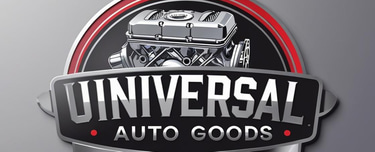Low mileage Engines and Transmission
📞CALL NOW +1 888-508-8804 Or Chat ON Whatsapp
Is it cheaper to fix an engine or replace it?
When your car’s engine has a major issue, you’re faced with a critical decision: Should you repair the existing engine or replace it altogether? The answer depends on the extent of the damage, the age and value of your vehicle, and your long-term goals. In many cases, replacing the engine with a quality used unit is more cost-effective than a major repair. Here’s a breakdown to help you decide: When Repairing the Engine Might Be Cheaper Minor or Specific Issues: If the problem is isolated—such as a failed gasket, fuel pump, or sensor—repairing the specific component is almost always cheaper than a full engine replacement. Low Labor Costs: If the repair doesn’t require disassembling the entire engine, labor costs may be manageable. Newer Vehicles: For a relatively new car under warranty, repairs might be covered or partially covered, making repair the logical choice.
Universal Auto Goods
9/9/20252 min read


Is It Cheaper to Fix an Engine or Replace It? Making the Smart Choice
When your car’s engine has a major issue, you’re faced with a critical decision: Should you repair the existing engine or replace it altogether? The answer depends on the extent of the damage, the age and value of your vehicle, and your long-term goals. In many cases, replacing the engine with a quality used unit is more cost-effective than a major repair.
Here’s a breakdown to help you decide:
When Repairing the Engine Might Be Cheaper
Minor or Specific Issues: If the problem is isolated—such as a failed gasket, fuel pump, or sensor—repairing the specific component is almost always cheaper than a full engine replacement.
Low Labor Costs: If the repair doesn’t require disassembling the entire engine, labor costs may be manageable.
Newer Vehicles: For a relatively new car under warranty, repairs might be covered or partially covered, making repair the logical choice.
When Replacing the Engine Is the Better Value
Severe Damage: If your engine has suffered catastrophic failure (e.g., thrown rod, cracked block, or severe overheating damage), repairs can be incredibly complex and expensive. In these cases, a used engine replacement often offers more reliability and better long-term value.
High Mileage: Older engines with extensive wear may require multiple repairs in quick succession. Replacing the engine with a lower-mileage used unit can prevent future breakdowns and save money over time.
Cost of Labor: Extensive engine repairs can require dozens of hours of labor—sometimes exceeding the cost of a used engine and replacement labor combined.
Warranty Coverage: Many used engines from reputable suppliers come with a warranty (e.g., 1–3 years), whereas repairs typically only guarantee the specific fixed component.
Cost Comparison: Repair vs. Replacement
Major Engine Repair:
Significant repairs (e.g., rebuilding the top end or replacing a timing chain that caused valve damage) can cost $2,500–$4,500+, depending on the vehicle.Used Engine Replacement:
A quality used engine often ranges from $500–$3,500, with installation adding $1,000–$2,500. The total typically falls between $2,500–$5,000—similar to a major repair but with the benefit of a like-new powerplant.
The Verdict
For localized, minor issues, repairing your engine is usually the cheaper and simpler route. But for catastrophic damage or high-mileage engines, replacement is often the smarter long-term investment. A used engine not only solves the immediate problem but also adds years of life to your vehicle—without the higher cost of a new car or new engine.
Quality
Affordable used auto parts for various vehicles.
contact us
Subscribe
+1 888-508-8804
© 2025. All rights reserved.Universal Auto Goods
